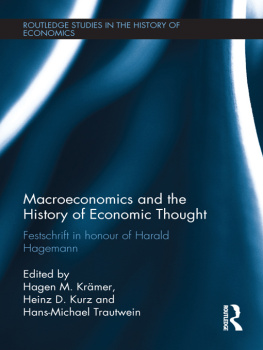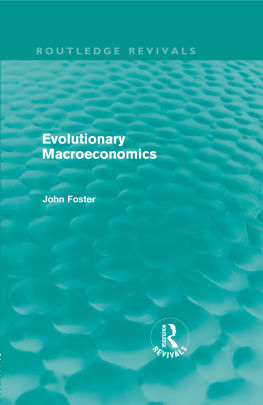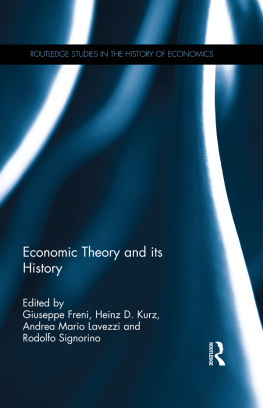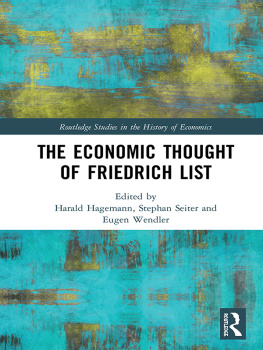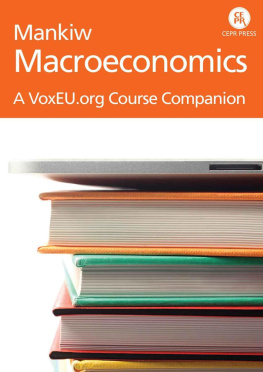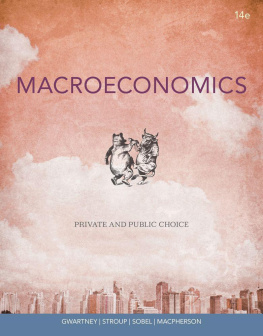Figures and tables
Figures
| 12.1 |
| 16.1 |
| 17.1 |
| 18.1 |
| 18.2 |
| 18.3 |
| 18.4 |
| 18.5 |
| 18.6 |
| 21.1 |
| 21.2 |
| 21.3 |
| 21.4 |
| 21.5 |
| 21.6 |
| 26.1 |
| 26.2 |
| 26.3 |
| 26.4 |
| 26.5 |
| 26.6 |
| 26.7 |
| 26.8 |
| 26.9 |
| 26.10 |
| 26.11 |
| 26.12 |
| 28.1 |
| 28.2 |
| 28.3 |
| 28.4 |
| 28.5 |
| 28.6 |
| 28.7 |
| 28.8 |
| 29.1 |
| 29.2 |
| 30.1 |
| 30.2 |
Tables
| 2.1 |
| 8.1 |
| 12.1 |
| 17.1 |
| 21.1 |
| 23.1 |
| 28.1 |
| 28.2 |
| 28.3 |
Contributors
Richard Arena is professor of economics at the University of NiceSophia Antipolis and at GREDEG-CNRS; his fields of interest are: business cycle theory, industrial economics, economic philosophy and history of economic thought in particular, Austrian economics.
Philip Arestis is director of research at the Cambridge Centre for Economics and Public Policy, University of Cambridge, UK, and professor of economics at the University of the Basque Country, Spain; his fields of interest are: monetary economics, macroeconomics, applied econometrics and applied political economy.
Tone Arnold is senior lecturer in economics at the University of Hohenheim; her fields of interest are: game theory, club formation and industrial economics.
Ingo Barens is professor of economics at the Technical University of Darmstadt; his fields of interest are: macroeconomics, Keynes and the Keynesians, and the economics of higher education.
Mauro Boianovsky is professor of economics at the University of Braslia, Brazil; his fields of interest are: history of economic thought, particularly of macroeconomics, monetary theory and development economics.
Pascal Bridel is professor of political economy at the University of Lausanne; his fields of interest are: general equilibrium theory, monetary theory and history of economic thought, in particular Marshall, Keynes, Walras and Pareto.
Volker Caspari is professor of economics at the Technical University of Darmstadt; his fields of interest are: general equilibrium theory, growth theory and Keynesian economics.
Earlene Craver is historian and economist, retired from the University of California Los Angeles; her fields of interest are: history of academic emigration, and Austrian economics
Muriel Dal-Pont Legrand is senior lecturer in economics at the University of NiceSophia Antipolis and researcher at GREDEG-CNRS; her fields of interest are: growth and finance, business cycle theory and history of economic thought.
Ragip Ege is professor of economics at the University Louis Pasteur, Strasbourg; his fields of interest are: economic history, particularly Ancient Greece and the Ottoman Empire; philosophy, and history of economic thought.
Georg Erber is research associate at DIW Berlin, the German Institute for Economic Research; his fields of interest are: industrial organization in ICT sectors, economics of networks and regulation of network industries, and growth and productivity measurement.
Christian Gehrke is associate professor of economics at the University of Graz; his fields of interest are: growth theory, analysis of structural change, and history of economic thought.
Alexander Gerybadze is professor of international management at the University of Hohenheim, Stuttgart; his fields of interest are: evolutionary models of innovation, R&D strategies and location decisions in multinational corporations, standardization consortia and intellectual property protection.
Geoff Harcourt is emeritus reader in the history of economic theory, University Cambridge; professor emeritus, Adelaide; and visiting professorial fellow at the University of New South Wales; his fields of interest are: Keynes and other Cambridge economists, capital theory, income distribution and employment.
Peter Kalmbach is professor emeritus of economics, University of Bremen; his fields of interest are: economic growth, income distribution, structural change and history of economic thought.
Hansjrg Klausinger is associate professor at Vienna University of Economics and Business; his fields of interest are: the history of economic thought, with a focus on twentieth century thought, and Austrian economics.
Hagen M. Krmer is professor of economics at Karlsruhe University of Applied Sciences; his fields of interest are: income distribution, European integration, the history of economic thought, and the structural change towards service economies.
Jrgen Kromphardt is professor emeritus of economics, Technical University of Berlin, and former member of the German council of economic advisors; his fields of interest are: business cycles, growth and employment, and methods and history of economics.
Heinz D. Kurz is professor of economics at the University of Graz; his fields of interest are numerous, but in particular: capital theory, renewable and exhaustible natural resources, inputoutput analysis, and Ricardian and Sraffian economics.
David Laidler is professor emeritus of economics, University of Western Ontario, London, Ontario; his fields of interest are: monetary theory, macroeconomics and history of economic thought.
Axel Leijonhufvud is professor emeritus of economics, University of California, Los Angeles, and University of Trento; his fields of interest are: macroeconomics, monetary theory, history of economic thought, and European economic history.
Maria Cristina Marcuzzo is professor of political economy at the University of Rome, La Sapienza; her fields of interest are: Keynes, Cambridge Economics, and the history of economic ideas.
William Milberg is professor of economics at the New School for Social Research, New York; his fields of interest are: international trade, economics of innovation, corporate finance, and the history and methodology of economics.
Edward J. Nell is Malcolm B Smith Professor at the New School for Social Research, New York; his fields of interest are: transformational growth, income distribution, and monetary theory.
Pier Luigi Porta is professor of Economics at the University of Milano-Bicocca; his fields of interest are: welfare economics, history of economic thought and analysis, the Classical School, and civil economy.
Andreas Pyka is professor of innovation economics at the University of Hohenheim, Stuttgart; his fields of interest are: Schumpeterian economics, structural change, agent-based modelling, and innovation.
Pier Paolo Saviotti is director of research at the University Pierre Mends-France in Grenoble; his fields of interest are: evolutionary economics, structural change, complexity economics, and biotechnology.
Roberto Scazzieri is professor of economics at the University of Bologna; his fields of interest are: structural economic dynamics, in particular in Hicksian traverse analysis, models of circumscribed rationality, and migration of ideas.
Bertram Schefold is professor of economics at the Goethe-University of Frankfurt; his fields of interest are: capital theory, economic theory, and history of economic thought.

